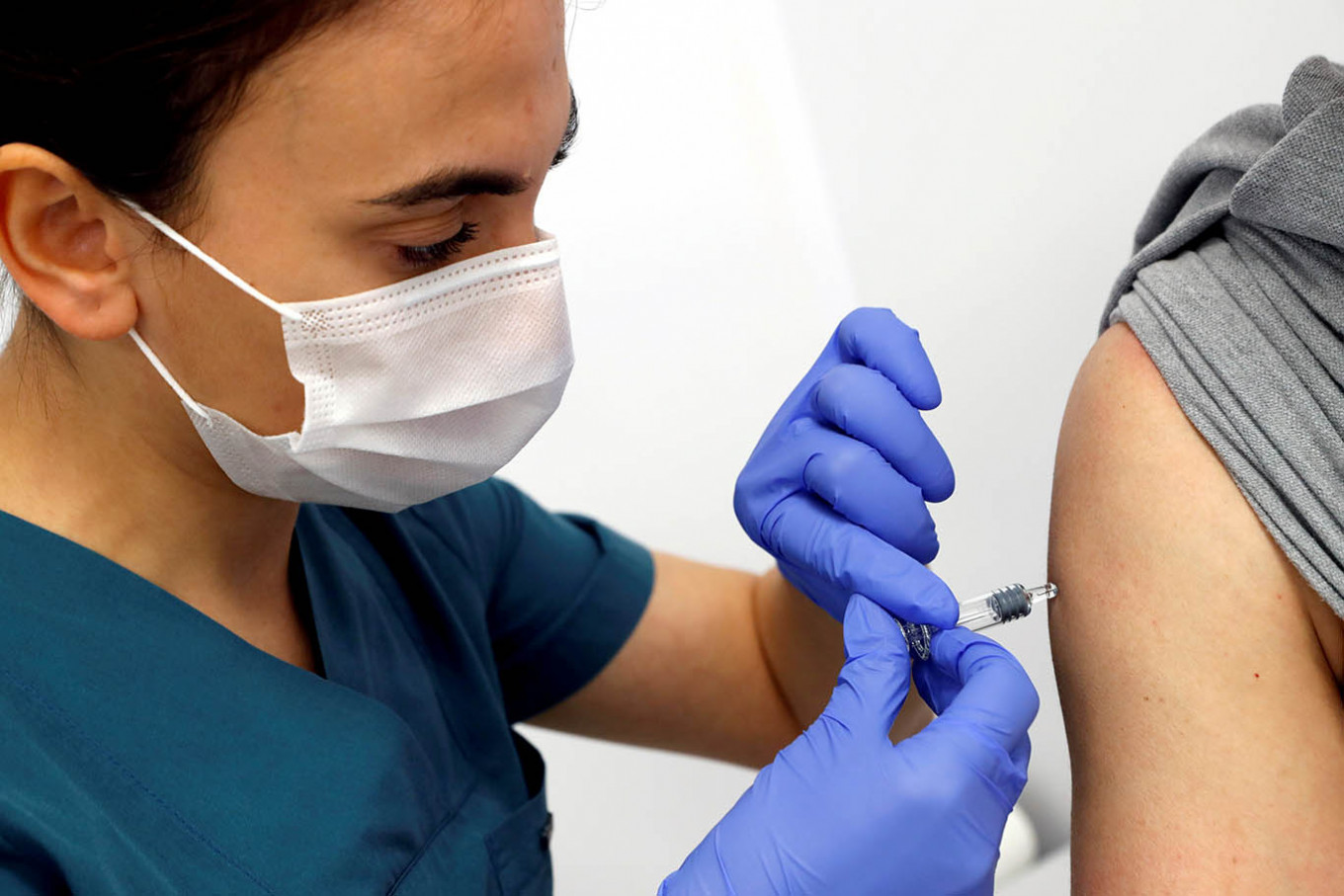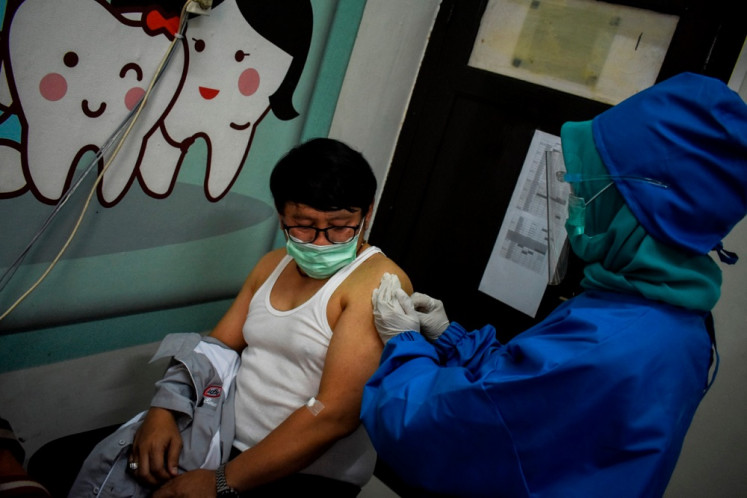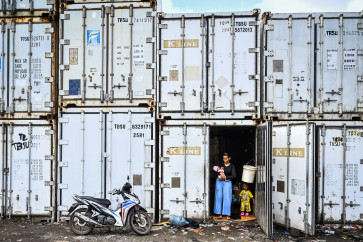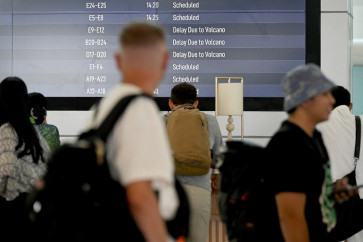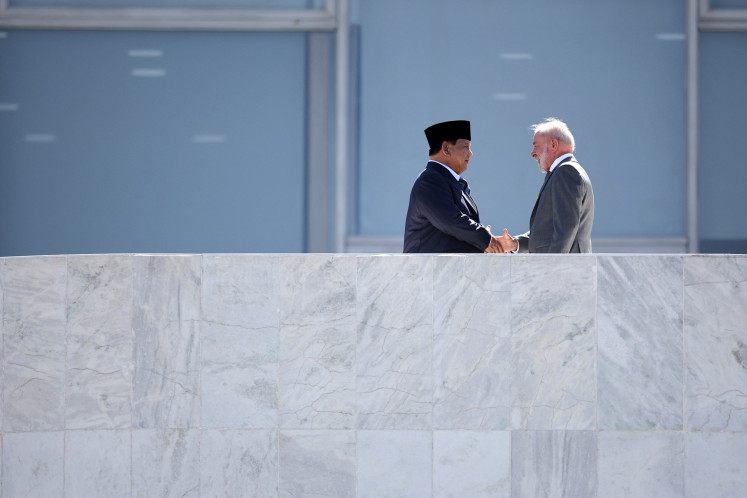Popular Reads
Top Results
Can't find what you're looking for?
View all search resultsPopular Reads
Top Results
Can't find what you're looking for?
View all search resultsDon’t rush COVID-19 vaccines, doctors tell govt eyeing emergency use
Change text size
Gift Premium Articles
to Anyone
I
ndonesia’s doctors have warned the government not to rush its COVID-19 vaccination programs and patiently wait instead for the results of ongoing trials to be published, as the state pushes for the emergency use authorization of vaccine candidates currently being developed in China.
Several professional medical associations have spoken out in alarm at the way the government is betting on the success of unfinished vaccines to solve the problems associated with the coronavirus outbreak in the country, despite scant evidence of the vaccines’ effectiveness and safety for human use.
“Vaccination is an important program but it cannot be rushed,” the Indonesian Medical Association (IDI) said in a statement to Health Minister Terawan Agus Putranto.
The IDI said that the government must choose vaccines that yielded good official results from the last stages of clinical testing, which proved their effectiveness, safety and immunogenicity – the ability to induce immune responses.
“We can see other countries are also taking precautions by waiting for more data from phase three clinical trials [to be published],” the association said on Wednesday.
Meanwhile, internists of the Indonesian Society of Internal Medicine (PAPDI) issued a similar statement the previous day, arguing that proving a trial vaccine’s effectiveness, immunogenicity and safety would require some time, so there was “no need to rush”.
Read also: Govt must brace for bumps as it lays out vaccination roadmap, experts advise
However, the government seems intent on securing emergency use authorization as soon as possible for the three Chinese vaccine candidates it is collaborating on.
It has mandated a team involving institutions such as the Food and Drug Monitoring Agency (BPOM) to set off for China to study the data from the trials.
“They will proceed as planned,” said Achmad Yurianto, the Health Ministry’s director general for disease control and prevention, confirming the BPOM team’s task on Friday.
No vaccine has yet been approved for full use thus far, but by authorizing emergency use, countries could make use of unapproved vaccines without the need to secure a distribution permit – albeit in a limited scope.
Such a policy decision can only be triggered during an emergency, in which there is no adequate, approved and available alternative for the treatment of a disease.
The three vaccines in question are from Chinese firms Sinovac, Sinopharm and CanSino Bio, which Yurianto claims have concluded their trials in a number of countries, such as in Brazil, Canada and Turkey.
However, Reuters reported on separate occasions that Canada had announced an end to its vaccine partnership with CanSino in August, and that a Turkish official was quoted as saying how the Sinovac trials had only started in September.
It also reported that Brazilian researchers had found the CoronaVac vaccine by Sinovac to be safe in a trial of 9,000 volunteers, but that they would only release data on its effectiveness after the trials were completed on all 13,000 volunteers.
Also, in contrast to what Yurianto said, Indonesia’s clinical trial research team leader for Sinovac vaccines, Kusnadi Rusmil, said on Thursday that none of the three vaccine candidates had completed their phase three clinical trials.
In Indonesia, state-owned pharmaceuticals holding firm Biofarma is still in the process of rolling out trials on 1,620 volunteer participants, which started in August and was led by Padjadjaran University researchers in Bandung, West Java. An interim analysis of the trials is expected in early 2021.
Read also: Vaccines won't bring back normal life at once: Experts
Meanwhile, Yurianto said that China had authorized emergency use for said vaccines for Chinese healthcare workers and military personnel. He said that the firms had committed to providing vaccines for a total of 9.1 million Indonesians in November and December, which the government would first use on healthcare workers.
“Certainty in the availability [of vaccines] will very much depend on the emergency use authorization that can be issued by BPOM and the halal recommendation from the MUI [Indonesian Ulema Council], for which we are currently in the data-sharing process,” the senior ministry official said during a virtual press briefing on Monday.
“All of this will be completed by the end of October. By the first week of November we hope to have certainty on the vaccines’ safety in terms of ‘benefits and risks’ as issued by BPOM, as well as the halal status by the MUI,” he added.
The IDI said that even if Indonesia was “forced to use” the emergency use authorization scheme, it felt certain that BPOM would take account of effectiveness, safety and immunogenicity – as well as maintaining independence and professionalism.
“It’s also necessary to consider the recommendation of the Indonesian Technical Advisory Group on Immunization [ITAGI] and the Strategic Advisory Group of Experts on Immunization of the World Health Organization [SAGE WHO],” IDI said.
Pulmonologists of the Indonesian Society of Respirology also wrote a statement demanding that any vaccine that enters Indonesia go through clinical trials on the country’s own population before it can be cleared for use.
Read also: Efficacy and safety first: Experts urge government not to put vaccines on pedestal
Foreign-developed vaccines run the risk of incompatibility with the genetic makeup of the local population.
However, BPOM’s drug registration director Lucia Rizka Andalucia said it was possible to refer to the clinical trial results of other countries when making decisions, although she acknowledged it was still better for countries to rely on their own relevant trial data.
Clinical trials for a vaccine to treat a disease are often multicentered by nature, meaning that data from trials in various countries could be combined.
As a result of this, authorities like BPOM could authorize emergency use so long as they deem the trial samples adequate and the safety and effectiveness of a vaccine to be proven, she said.
Lucia also said BPOM would only authorize emergency use if the benefits outweighed the risks and the authorization would be based on an analysis of clinical and non-clinical data, and only with adequate evidence of safety and effectiveness.
The agency would also check whether the vaccine producers had followed good manufacturing practices, conducted tight pharmacovigilance – post-authorization monitoring to detect adverse effects – and reviewed the authorization decision with updated data, based on criteria and standards referenced globally, such as from the WHO.
“BPOM remains independent in its decision making,” Lucia said. “It isn’t alone; there is the National Committee of Drug Evaluation, and it always works with a team of experts when making decisions.”

